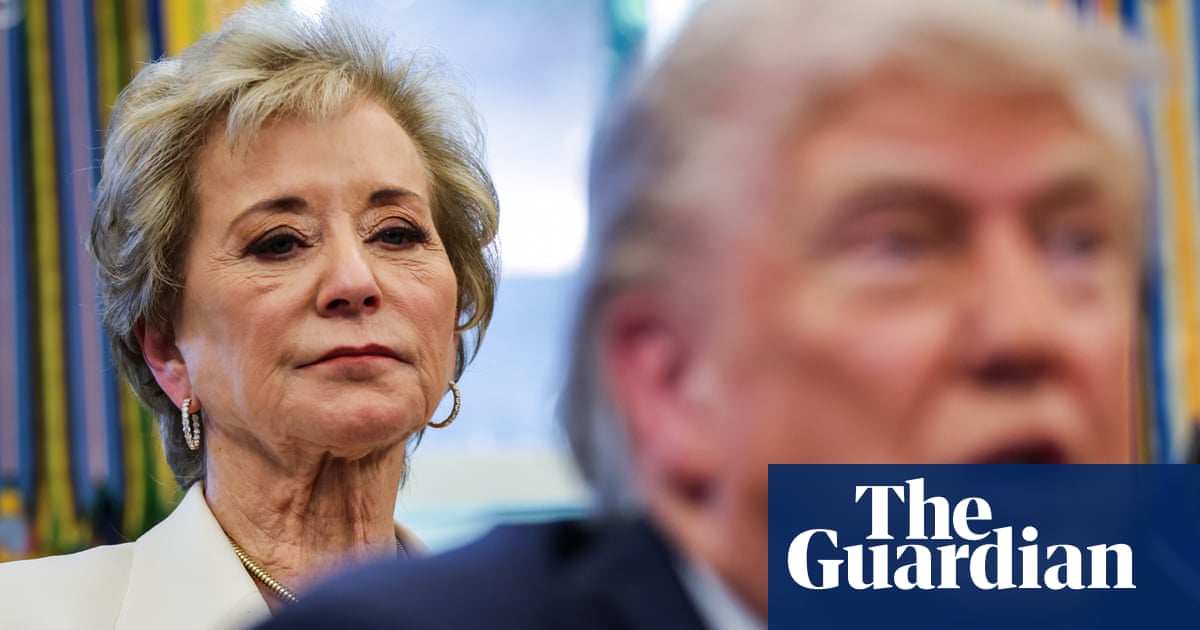Donald Trumpsigned executive orders on Wednesday targetinguniversitiesas his administration seeks to reshape higher-education institutions and continues to crack down on diversity and inclusion efforts.
The actions address foreign gifts to universities, directing the federal government to “enforce laws on the books” related to the disclosure of large donations, and college accreditation, which the president has referred to as his “secret weapon” to upendUS universities. While reading the orders to Trump, the White House staff secretary Will Scharf said that the third-party groups that accredit universities have relied on “woke ideology” rather than merit.
Linda McMahon, the education secretary, added during the signing in the Oval Office: “We should be looking at those who have real merit to get in, and we have to look harder at those universities that aren’t enforcing that.”
Trump’s administration has been engaged in an all-out attack on US universities since the president took office in January, seeking to dramatically alter institutions he has claimed have been taken over by “Marxist maniacs and lunatics”. The federal government has sought to cut billions in funding from universities unless they comply with administration demands; banned diversity initiatives; and detained international students in retaliation for their activism.
This week,more than 150US university presidents signed a statement condemning the Trump administration’s “unprecedented government overreach and political interference” in higher education. Meanwhile, Harvard University – which Scharf mentioned by name when introducing the order related to foreign gifts – has sued the government in response to the threatened funding cuts.
The president hasreferred to accreditationas a “secret weapon” in his fight against universities.
“I will fire the radical-left accreditors that have allowed our colleges to become dominated by Marxist maniacs and lunatics,” hesaidlast summer. “We will then accept applications for new accreditors who will impose real standards on colleges once again and once for all.”
According to astatementfrom the White House, the order directs McMahon to hold accreditors accountable with “denial, monitoring, suspension, or termination of accreditation recognition, for accreditors’ poor performance or violations of federal civil rights law”. It also orders administration officials to investigate “unlawful discrimination” in higher education.
The White House alleges accreditors have imposed “discriminatory diversity, equity, and inclusion (DEI)-based standards”, which it describes as a violation of federal law and an abuse of their authority.
While signing orders on Wednesday that Scharf said would direct schools out of the “whole sort of diversity, equity and inclusion cult”, the president said that the US was “getting out of that … after being in that jungle for a long time”.
Despite his condemnation of diversity and inclusion efforts, Trump also signed an order establishing a White House initiative on historically black colleges and universities to promote “excellence and innovation”. The order facilitates the creation of a presidential advisory board on HBCUs and seeks to address funding barriers and increase affordability and retention rates.
The president also signed orders related to workforce development and artificial intelligence education to ensure the future workforce is “adequately trained in AI tools”, Scharf said.
